
Find Help
More Items From Ergsy search
-

What is Autism?
Relevance: 100%
-
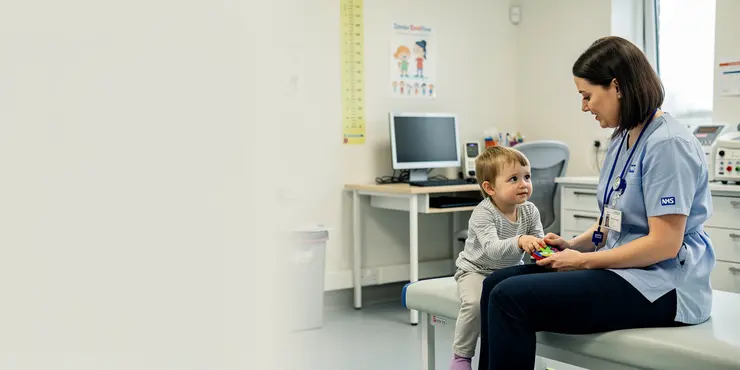
Is there an autism test?
Relevance: 100%
-
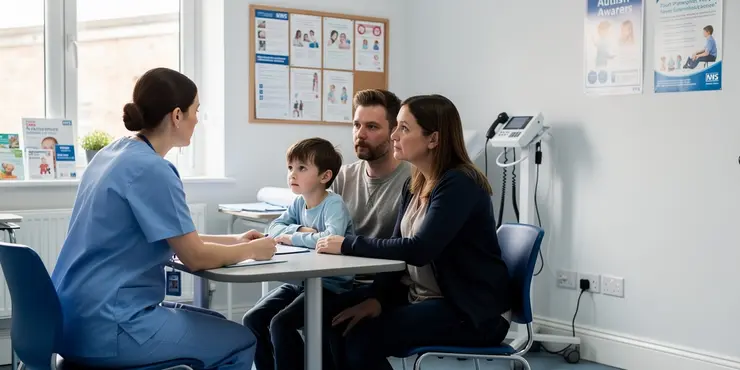
Is there a genetic component to autism?
Relevance: 96%
-
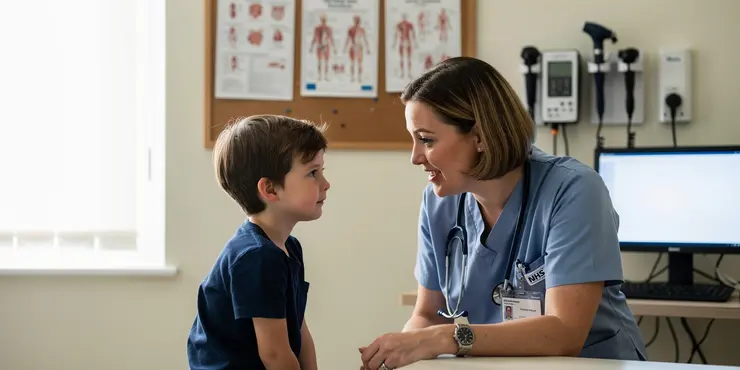
How prevalent is autism?
Relevance: 96%
-
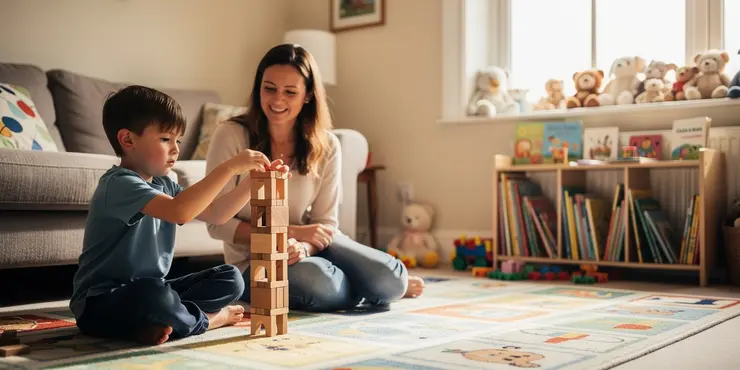
What is the autism spectrum?
Relevance: 96%
-
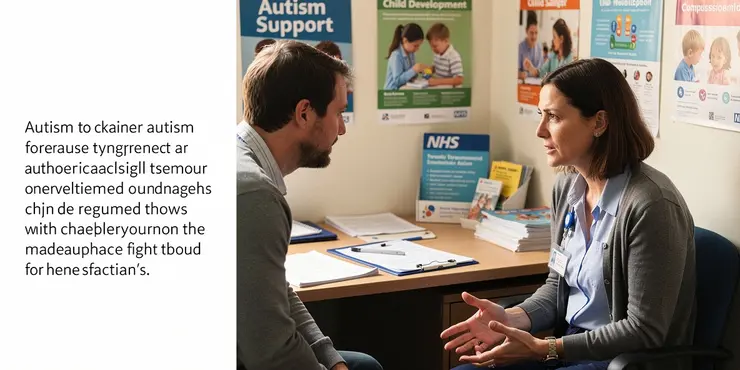
What causes autism?
Relevance: 95%
-
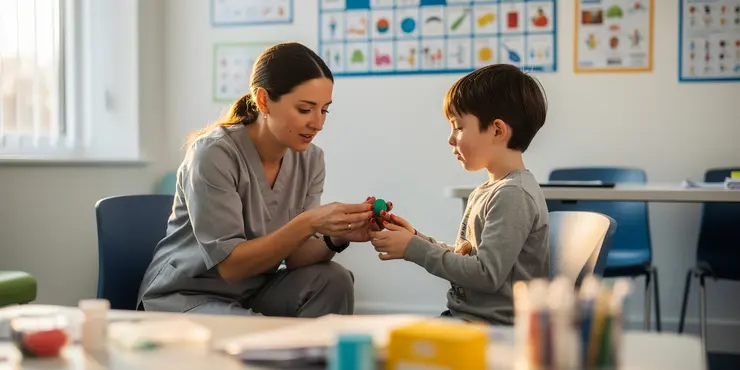
Can autism be cured?
Relevance: 95%
-
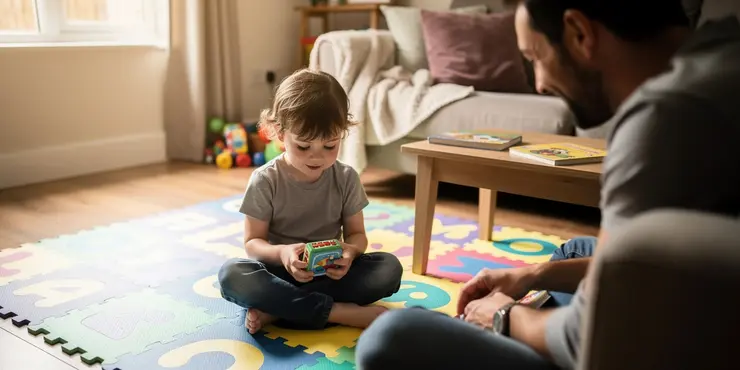
What are the signs of autism?
Relevance: 94%
-
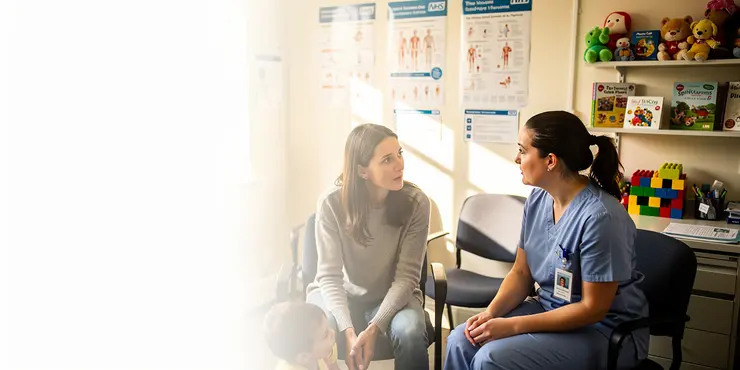
How is autism diagnosed?
Relevance: 94%
-

Are vaccines linked to autism?
Relevance: 93%
-
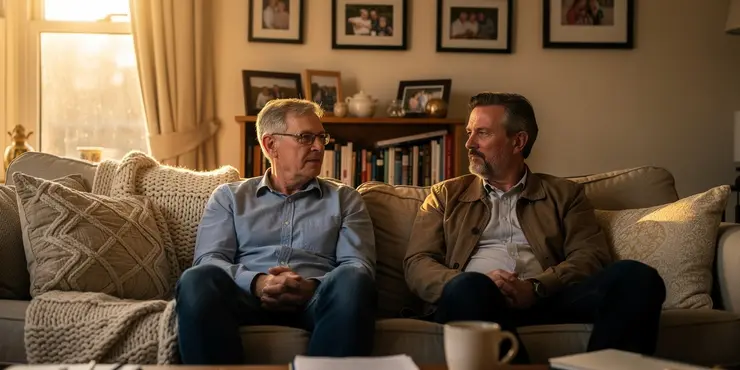
Can adults have autism?
Relevance: 92%
-
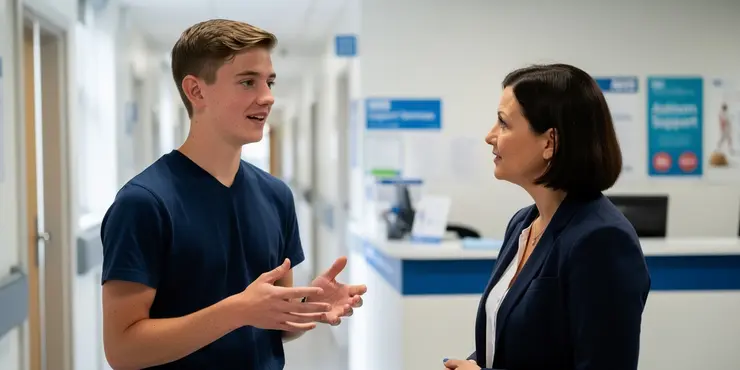
Autism: Graeme's story | NHS
Relevance: 92%
-
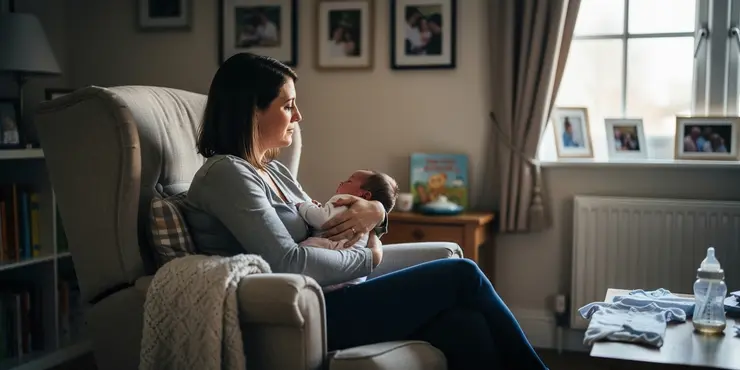
Is paracetamol linked to autism?
Relevance: 92%
-
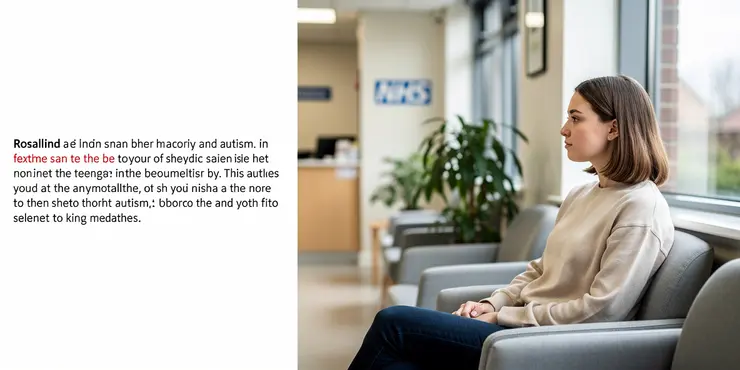
Autism - My Story - Rosalind | NHS
Relevance: 91%
-
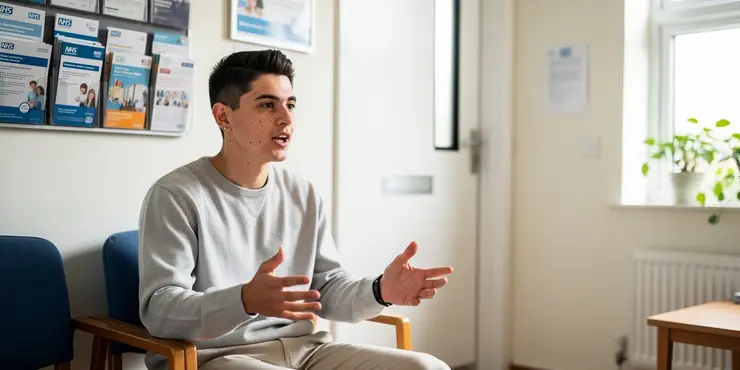
Autism - My Story - Adrian | NHS
Relevance: 90%
-

What can cause autism, if not paracetamol?
Relevance: 89%
-

Is autism more common in boys or girls?
Relevance: 88%
-

How does autism affect communication?
Relevance: 87%
-
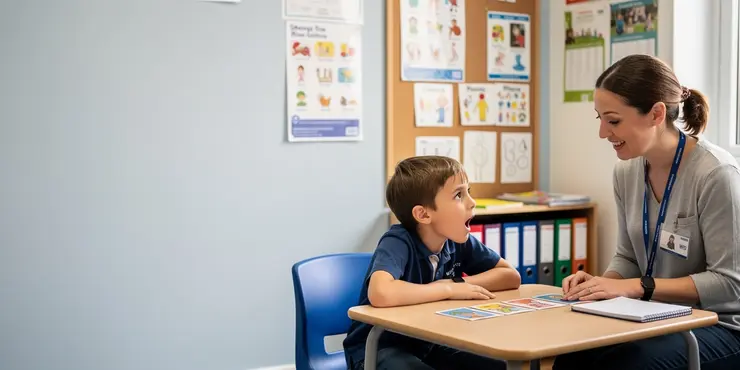
What are some common therapies for autism?
Relevance: 87%
-

Can people with autism lead independent lives?
Relevance: 85%
-

What is the difference between autism and Asperger's syndrome?
Relevance: 84%
-
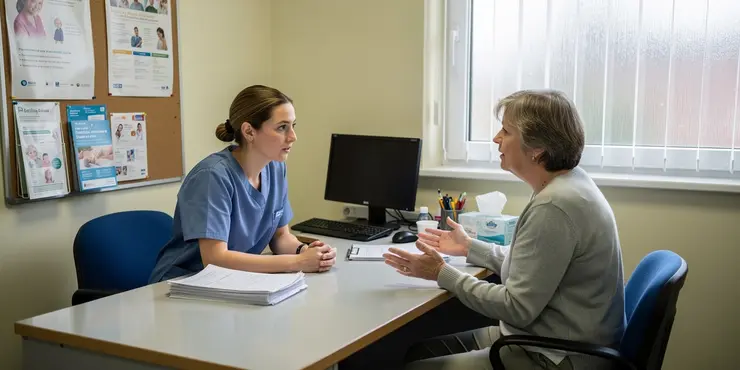
Autism Assessment - What Happens in Your Appointment
Relevance: 82%
-
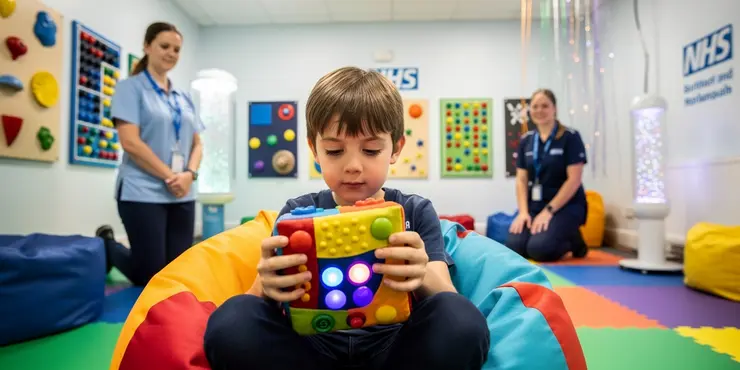
What role do sensory issues play in autism?
Relevance: 82%
-
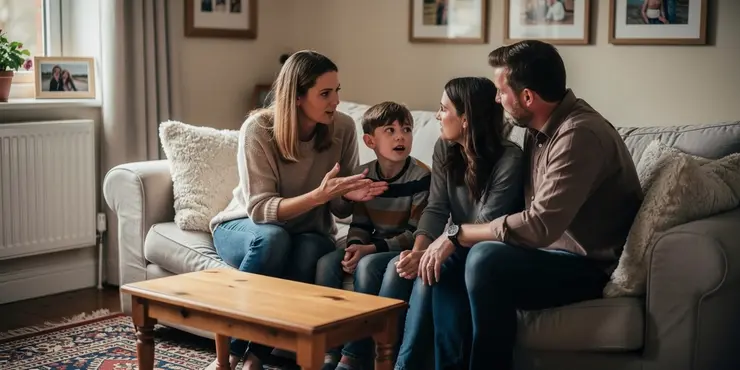
How can families support a member with autism?
Relevance: 81%
-
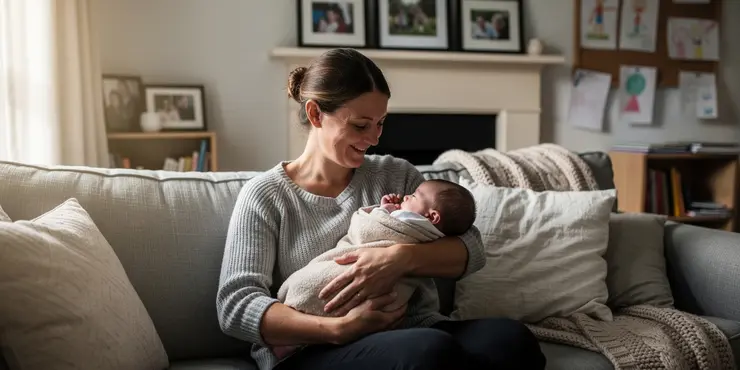
Is there any scientific evidence that links paracetamol use to autism?
Relevance: 81%
-
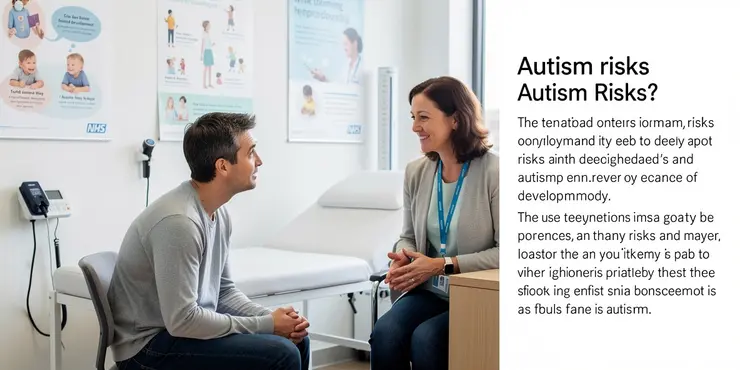
What advice is available for parents concerned about autism risks?
Relevance: 81%
-
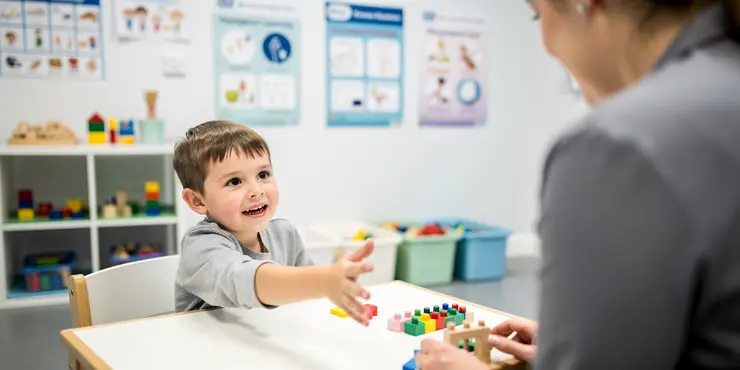
How can early intervention help children with autism?
Relevance: 80%
-

The NHS Long Term Plan for learning disability and autism
Relevance: 80%
-

Why is there concern about paracetamol and autism?
Relevance: 80%
-

Is there any risk of using paracetamol outside of pregnancy with regard to autism?
Relevance: 78%
-
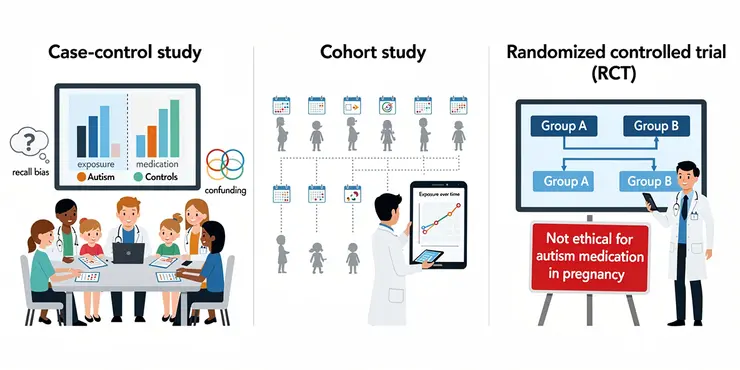
What kind of studies are conducted to investigate links between medications and autism?
Relevance: 78%
-

Transforming Care for people with Learning Disabilities and/ or Autism: Peter's Story
Relevance: 70%
-

NHS-led Provider Collaboratives: improving mental health, learning disability and autism services
Relevance: 60%
-

What are the limitations of studies examining paracetamol use and autism?
Relevance: 56%
-

We are autistic | NHS
Relevance: 50%
-

Has paracetamol been linked to other developmental issues besides autism?
Relevance: 49%
-
Have any major health organizations advised against using paracetamol during pregnancy due to autism concerns?
Relevance: 46%
-
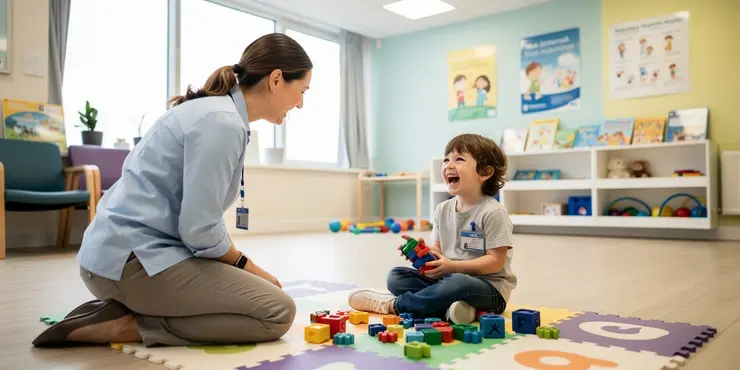
What is applied behavior analysis (ABA)?
Relevance: 33%
-
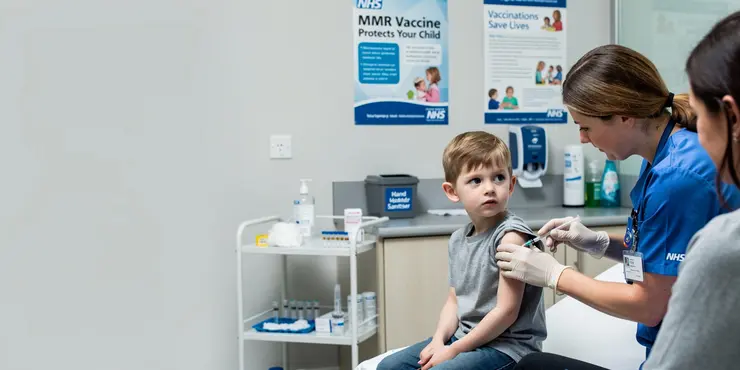
How effective is the MMR vaccine?
Relevance: 31%
-
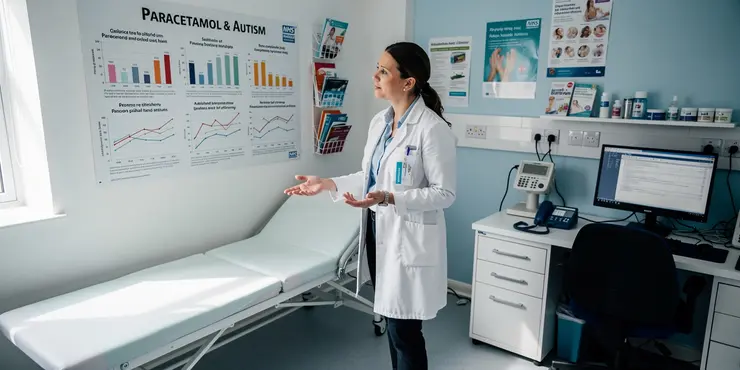
What do researchers say about the link between paracetamol and autism?
Relevance: 31%
Understanding Autism
Autism, or autism spectrum disorder (ASD), is a developmental condition that affects communication and behaviour. It is called a "spectrum" because it encompasses a range of symptoms and levels of impairment. Individuals with autism may experience varying challenges but may also exhibit unique strengths.
Characteristics of Autism
People with autism often have difficulties with social interaction, experiencing challenges in verbal and non-verbal communication, and sometimes struggle to understand social cues. They might also engage in repetitive behaviours and have restricted interests. These characteristics can manifest in different ways, from difficulties in engaging in a conversation to having an intense focus on specific topics.
Causes of Autism
The exact cause of autism is not fully understood, but it is believed to involve a combination of genetic and environmental factors. While no single cause has been identified, research suggests that several genes could influence the development of autism. Additionally, prenatal and perinatal factors, such as maternal infections or complications during birth, may contribute to an increased risk.
Diagnosis and Signs
Autism can often be diagnosed in children as young as two years old, although some adults may receive a diagnosis later in life. Diagnostic processes typically involve observing a child's behaviour and development. Common signs include avoiding eye contact, delayed speech development, and difficulties in understanding subtle facial expressions or tone of voice.
Support and Treatment
There is no "cure" for autism, but various interventions can help manage symptoms and enhance quality of life. Speech and language therapy, occupational therapy, and behavioural therapies are commonly used to support individuals with autism. Education and tailored support plans are also crucial, helping to align with the individual's needs and goals.
Living with Autism
Many individuals with autism lead fulfilling lives, often possessing unique talents and skills. Acceptance and understanding by society are essential in providing the right support environments. In the UK, various charities and organisations offer resources and assistance to families and individuals affected by autism.
Conclusion
Autism is a complex condition that encompasses a diverse range of symptoms and abilities. Early diagnosis and tailored interventions can significantly impact the lives of those on the autism spectrum. Understanding and awareness can foster inclusive communities that recognise and nurture the potential of every individual with autism.
Understanding Autism
Autism is when some people think and behave differently. People with autism often find talking and being with others hard. Autism is called a "spectrum" because it can be different for everyone. Some people with autism have special skills.
Characteristics of Autism
People with autism might find it hard to chat with others. They might not understand body language or how people feel. They may like doing the same thing over and over. They might think a lot about one thing, like trains or animals.
Causes of Autism
We don't know exactly what causes autism. It might be in a person's genes or because of things that happen before or when a baby is born. Scientists are trying to learn more about why people have autism.
Diagnosis and Signs
Doctors can often tell if a child has autism when they are two years old. Some adults find out later. Doctors look at how children play and talk. Children with autism might not look in your eyes, might start talking later, and might not understand how you sound when you speak.
Support and Treatment
There is no cure for autism, but there are ways to help. Speech therapy can help with talking. Occupational therapy can help with doing everyday things. Doctors and teachers work together to support each person with autism, helping them learn and grow.
Living with Autism
Many people with autism have happy lives and can do amazing things. It is important for people to understand autism so we can all help each other. In the UK, there are groups that help people with autism and their families.
Conclusion
Autism is different for everyone. Knowing about it helps people with autism have better lives. When we understand autism, we can all be kinder and help people with autism do well.
Frequently Asked Questions
What is autism?
Autism, or Autism Spectrum Disorder (ASD), is a developmental disorder characterized by challenges with social interaction, communication, and by restricted and repetitive behavior.
What are the signs of autism?
Signs of autism can include difficulties in communication, repetitive behaviors, sensory sensitivities, and difficulties with social interactions.
How is autism diagnosed?
Autism is typically diagnosed through a combination of behavioral evaluations, developmental screenings, and assessments by specialists such as developmental pediatricians or child psychologists.
Can autism be cured?
There is currently no cure for autism, but early intervention and tailored support can help individuals manage symptoms and lead fulfilling lives.
What causes autism?
The exact cause of autism is unknown, but it is believed to result from a combination of genetic and environmental factors.
Is there a genetic component to autism?
Yes, research indicates that genetics play a significant role in the likelihood of developing autism.
Are vaccines linked to autism?
Extensive research has shown that there is no scientific evidence linking vaccines to autism.
What are some common therapies for autism?
Common therapies for autism include behavioral therapy, speech therapy, occupational therapy, and social skills training.
Can adults have autism?
Yes, adults can have autism. Many adults may have been diagnosed as children, but some may only receive a diagnosis later in life.
Is autism more common in boys or girls?
Autism is more commonly diagnosed in boys than in girls, although it is thought that it may be underdiagnosed in girls.
What is the autism spectrum?
The autism spectrum refers to the wide range of symptoms and severity levels that individuals with autism can experience.
How does autism affect communication?
Individuals with autism may struggle with verbal and nonverbal communication, including understanding tone, facial expressions, and gestures.
What role do sensory issues play in autism?
People with autism often experience sensory processing issues, where they may be over- or under-sensitive to sounds, lights, textures, and other sensory inputs.
Can people with autism lead independent lives?
Many individuals with autism can lead independent lives with the appropriate support and accommodations. Each person's ability to live independently varies widely.
What is the difference between autism and Asperger's syndrome?
Asperger's syndrome is a part of the autism spectrum where individuals have milder symptoms and typically do not have significant delays in language or cognitive development.
How can early intervention help children with autism?
Early intervention can help children with autism develop essential skills in communication, social interaction, and adaptive behavior, significantly improving their outcomes.
What is applied behavior analysis (ABA)?
Applied Behavior Analysis (ABA) is a therapeutic approach focused on improving specific behaviors, such as social skills and communication, through positive reinforcement.
Is there an autism test?
There is no simple medical test for autism. Diagnosis is generally based on behavioral assessments and developmental evaluations by professionals.
How can families support a member with autism?
Families can support a member with autism by seeking early intervention services, providing accommodations, advocating for them, and creating a supportive and understanding environment.
How prevalent is autism?
Autism is quite prevalent, with recent estimates suggesting that it affects approximately 1 in 54 children in the United States.
What is autism?
Autism is a brain difference. It means people think and feel in ways that are special and different. Everyone with autism is unique. They might like certain things a lot or find some sounds and lights too strong.
Some people with autism may need extra help. Things like pictures or apps can be useful to understand or talk.
Autism is a condition that affects how someone grows and learns. People with autism might find it hard to talk and play with others. They might also like doing the same thing again and again.
What are the signs of autism?
Here is how you can tell if someone might have autism:
- They might find it hard to talk to other people.
- They might like to do the same thing over and over.
- They might like to be alone a lot.
- They might not like loud noises or bright lights.
- They might have a strong interest in a particular topic.
It’s important to remember that everyone is different. Some people with autism might have some of these signs, while others might not.
Talking to a doctor can help understand better. Using pictures and simple words can make it easier to talk about autism.
Autism signs can be:
- Trouble talking with people
- Doing the same thing over and over
- Being sensitive to sounds, lights, or touch
- Finding it hard to be with others
If you find any of these hard, you can ask for help:
- Talk to someone you trust
- Use pictures to help understand things
- Ask for a quiet place when things feel too loud
How do doctors know if someone has autism?
Doctors find out if someone has autism by talking with them and their family. They ask questions and watch how the person plays, talks, and acts.
Sometimes, doctors use special tests to help them understand more. They might also talk to teachers or other people who know the person well.
If you want to know more, there are books and videos that can help. Parents and teachers can also help explain things.
Doctors check for autism in different ways. They look at how a child behaves, talk to them, and ask questions. Special doctors like child doctors and child minds doctors help to find out if someone has autism.
Can autism be fixed?
Autism is something you are born with. It is not an illness like a cold. So, it cannot be "cured" or "fixed". People with autism think and feel differently. That's okay! There are ways to help people with autism, like special learning tools and talking to someone who understands.
Right now, there is no cure for autism. But getting help early can really make a difference. Special support can help people with autism feel better and enjoy life more.
Why do some people have autism?
Autism happens because of differences in the brain. Scientists are not sure why these differences happen. It might be because of genes, which are like codes in our bodies that come from our parents. Other things, like the environment around us, might also play a part.
Some supportive tools to help understand more about autism are books, videos, or talking to a doctor. You can also find people who know a lot about autism to ask your questions.
No one really knows what causes autism. People think it happens because of genes and things around us, like the environment.
Is autism caused by genes?
Some parts of autism can be passed down from parents. This means it can run in families.
Not only genes cause autism. Many things can make autism more likely.
Using pictures and videos can help understand more about autism. Talking with someone who knows a lot can also help.
Yes, researchers have found that our genes can make it more likely for someone to have autism.
Do vaccines cause autism?
Many studies have looked at vaccines and autism, and they show that vaccines do not cause autism.
What are some ways to help people with autism?
There are different ways to help people with autism. These are called therapies. Here are some common ones:
- Speech therapy: This helps with talking and understanding words.
- Occupational therapy: This helps with everyday skills like dressing and playing.
- Behaviour therapy: This helps with learning good habits and listening.
- Social skills classes: This helps with making friends and talking to people.
It is important to talk to doctors or teachers who know about autism. They can help find the best way to help.
There are different ways to help people with autism.
Some help types are:
- Behavioral Therapy: This helps people learn good habits.
- Speech Therapy: This helps people talk better.
- Occupational Therapy: This helps with daily tasks like getting dressed.
- Social Skills Training: This helps people make friends and get along with others.
Special tools, like picture cards or apps, can also help.
Can grown-ups have autism?
Yes, they can. Autism is something you are born with. It is not just for kids. Some people find out they have autism when they are grown-ups.
If you want to learn more, you can:
- Talk to a doctor or a helper.
- Look at easy books about autism.
- Ask someone you trust to help you find information.
Yes, grown-ups can have autism. Some grown-ups knew they had autism when they were kids. But some only find out they have autism when they are older.
Are more boys or girls autistic?
Autism is found more often in boys than in girls. But some people think it might not be noticed as much in girls.
What is the autism spectrum?
The autism spectrum is a way to describe different kinds of autism. Autism is something that can make it hard to talk, play, or learn like others. Everyone with autism is different, so the spectrum shows all the different ways people have autism.
If you want to learn more, try using pictures, watch videos, or ask an adult to help explain.
The autism spectrum means there are many different symptoms and how strong they can be for people with autism.
How does autism affect talking and understanding others?
Some people with autism find it hard to talk with others. They might not speak much or find it tricky to understand what others mean.
Here are some ways autism can affect talking and understanding:
- Finding the right words can be hard.
- Understanding jokes or sarcasm isn't easy.
- They might not look at your face when talking.
- They like to talk about their favorite things a lot.
Tools that might help:
- Use pictures or drawings to help explain things.
- Try using clear and simple words.
- Be patient and give them extra time to understand.
People with autism might find it hard to talk and understand others. This can be with speaking, understanding voices, looking at faces, and seeing hand movements.
How do sensory problems affect people with autism?
Some people with autism have strong reactions to sights, sounds, smells, tastes, touch, or movement.
This can make them feel upset or uncomfortable. For example, loud noises can hurt their ears, or bright lights can be too much for their eyes.
Supportive tools can help. Noise-canceling headphones can make things quieter. Sunglasses can help with bright lights.
If something feels too much, a quiet place can help them feel better.
People with autism might find some things harder. These can be things they see, hear, or touch. For example, they might think sounds are too loud or lights are too bright. Or they might not notice some things at all.
Can people with autism live on their own?
Some people with autism can live on their own, but others might need some help. It depends on the person and what they need.
Here are some things that can help:
- Learning skills: People can learn important skills like cooking, cleaning, and taking care of money.
- Support from others: Family, friends, or helpers can give support and advice.
- Using technology: Phones, computers, or special apps can help remember things and stay organized.
Everyone is different, and that's okay. Getting support and learning new things can help people with autism live more independently.
People with autism can often live on their own if they have the right help and support. Everyone is different, so some people might need more help than others.
How are autism and Asperger's syndrome different?
Autism and Asperger's syndrome are both conditions that affect how people understand and interact with the world. Here is a simple way to see how they are different:
- Autism: People with autism may have trouble talking, playing, or doing everyday things. They might like to do the same things over and over. Some may need more help and support.
- Asperger's Syndrome: People with Asperger's usually talk and play more easily than those with autism. They might have strong interests in specific topics and like routines. They need less help.
If you or someone you know has questions, it's good to talk to a doctor or an expert. They can help understand and provide support.
Using pictures or stories can also help to understand better. There are special tools and apps that make learning easier too.
Asperger's syndrome is a type of autism. People with Asperger's have milder challenges. They usually do not have big problems with talking or learning.
How does early help support children with autism?
Early help means giving support to children with autism as soon as possible. This is important because:
- It can make it easier for them to learn and grow.
- It helps them talk and play with others.
- It can make them feel happier and more comfortable.
Here are some things that might help:
- Going to special classes or games that teach skills.
- Working with therapists, like speech or play therapists.
- Being patient and giving lots of praise when they do well.
Using simple pictures or charts can also help them understand better. It's good to start helping as soon as you can!
Helping children with autism early can teach them important skills. These skills help them talk to others, make friends, and do everyday tasks better. This can make a big difference in their lives.
What is applied behavior analysis (ABA)?
Applied behavior analysis, or ABA, is a way to help people learn new things and behave in better ways. It can help children and adults. Some people use ABA to become better at school or home.
If you want to learn more about ABA, you can ask teachers or caregivers. They may use pictures, simple words, and games to make learning fun and easy!
Applied Behavior Analysis (ABA) is a way to help people learn. It helps people get better at things like talking and playing with others. ABA works by giving rewards for good behavior.
Can you test for autism?
There is no easy test to tell if someone has autism. Doctors look at how a person behaves and grows to see if they might have autism. They need to be experts to do this.
How can families help someone with autism?
Families can help someone with autism in a few ways. They can get support early, make changes to help them, speak up for them, and make sure everyone is kind and understanding.
How common is autism?
Autism is something that some people have from when they are very young.
Today, we know more kids have autism than we used to think. Experts say that out of every 100 kids, about 1 or 2 might have autism.
If you want help to learn more, you can ask a teacher or use a tool like picture cards or storybooks.
Autism is common. It affects about 1 in every 54 children in the United States.
Useful Links
This website offers general information and is not a substitute for professional advice.
Always seek guidance from qualified professionals.
If you have any medical concerns or need urgent help, contact a healthcare professional or emergency services immediately.
Some of this content was generated with AI assistance. We’ve done our best to keep it accurate, helpful, and human-friendly.
- Ergsy carfully checks the information in the videos we provide here.
- Videos shown by Youtube after a video has completed, have NOT been reviewed by ERGSY.
- To view, click the arrow in centre of video.
- Most of the videos you find here will have subtitles and/or closed captions available.
- You may need to turn these on, and choose your preferred language.
- Go to the video you'd like to watch.
- If closed captions (CC) are available, settings will be visible on the bottom right of the video player.
- To turn on Captions, click settings .
- To turn off Captions, click settings again.
More Items From Ergsy search
-

What is Autism?
Relevance: 100%
-

Is there an autism test?
Relevance: 100%
-

Is there a genetic component to autism?
Relevance: 96%
-

How prevalent is autism?
Relevance: 96%
-

What is the autism spectrum?
Relevance: 96%
-

What causes autism?
Relevance: 95%
-

Can autism be cured?
Relevance: 95%
-

What are the signs of autism?
Relevance: 94%
-

How is autism diagnosed?
Relevance: 94%
-

Are vaccines linked to autism?
Relevance: 93%
-

Can adults have autism?
Relevance: 92%
-

Autism: Graeme's story | NHS
Relevance: 92%
-

Is paracetamol linked to autism?
Relevance: 92%
-

Autism - My Story - Rosalind | NHS
Relevance: 91%
-

Autism - My Story - Adrian | NHS
Relevance: 90%
-

What can cause autism, if not paracetamol?
Relevance: 89%
-

Is autism more common in boys or girls?
Relevance: 88%
-

How does autism affect communication?
Relevance: 87%
-

What are some common therapies for autism?
Relevance: 87%
-

Can people with autism lead independent lives?
Relevance: 85%
-

What is the difference between autism and Asperger's syndrome?
Relevance: 84%
-

Autism Assessment - What Happens in Your Appointment
Relevance: 82%
-

What role do sensory issues play in autism?
Relevance: 82%
-

How can families support a member with autism?
Relevance: 81%
-

Is there any scientific evidence that links paracetamol use to autism?
Relevance: 81%
-

What advice is available for parents concerned about autism risks?
Relevance: 81%
-

How can early intervention help children with autism?
Relevance: 80%
-

The NHS Long Term Plan for learning disability and autism
Relevance: 80%
-

Why is there concern about paracetamol and autism?
Relevance: 80%
-

Is there any risk of using paracetamol outside of pregnancy with regard to autism?
Relevance: 78%
-

What kind of studies are conducted to investigate links between medications and autism?
Relevance: 78%
-

Transforming Care for people with Learning Disabilities and/ or Autism: Peter's Story
Relevance: 70%
-

NHS-led Provider Collaboratives: improving mental health, learning disability and autism services
Relevance: 60%
-

What are the limitations of studies examining paracetamol use and autism?
Relevance: 56%
-

We are autistic | NHS
Relevance: 50%
-

Has paracetamol been linked to other developmental issues besides autism?
Relevance: 49%
-
Have any major health organizations advised against using paracetamol during pregnancy due to autism concerns?
Relevance: 46%
-

What is applied behavior analysis (ABA)?
Relevance: 33%
-

How effective is the MMR vaccine?
Relevance: 31%
-

What do researchers say about the link between paracetamol and autism?
Relevance: 31%


